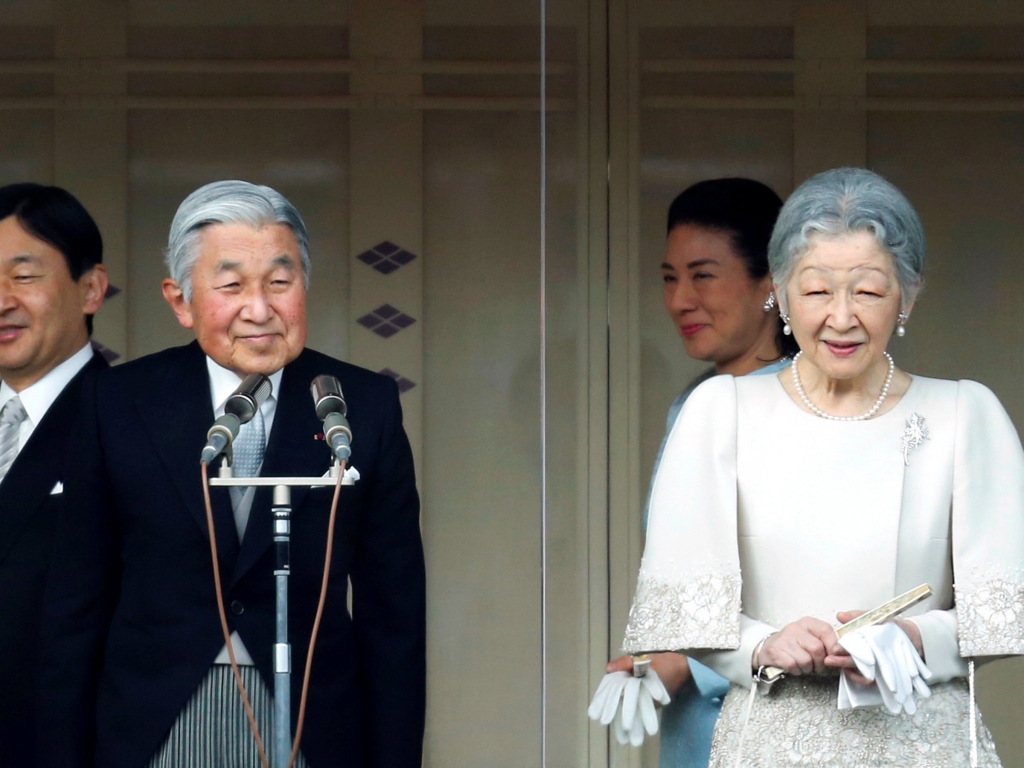-
Tips for becoming a good boxer - November 6, 2020
-
7 expert tips for making your hens night a memorable one - November 6, 2020
-
5 reasons to host your Christmas party on a cruise boat - November 6, 2020
-
What to do when you’re charged with a crime - November 6, 2020
-
Should you get one or multiple dogs? Here’s all you need to know - November 3, 2020
-
A Guide: How to Build Your Very Own Magic Mirror - February 14, 2019
-
Our Top Inspirational Baseball Stars - November 24, 2018
-
Five Tech Tools That Will Help You Turn Your Blog into a Business - November 24, 2018
-
How to Indulge on Vacation without Expanding Your Waist - November 9, 2018
-
5 Strategies for Businesses to Appeal to Today’s Increasingly Mobile-Crazed Customers - November 9, 2018
Uncertainty in Japan as emperor hints at abdication
In a rare speech televised throughout Japan on Monday, August 8, 82-year-old Emperor Akihito spoke in length about his deteriorating health, which he said was increasingly preventing him from carrying out his constitutional duties. In a 10 minute pre-recorded message, the 82 year-old Emperor reflected upon his years on the throne, and spoke about how his age and health issues are making it hard for him to fulfill his royal duties.
Advertisement
The video message was recorded at the Imperial Palace on Sunday, a few weeks after Public broadcaster NHK reported that Akihito wanted to step down in a few years – a move that would be unprecedented in modern Japan.
During his 27-year reign Emperor Akihito has spoken of his deep belief in pacifism, sought forgiveness for Japan’s wartime atrocities and tried to bring the Imperial Throne closer to the people.
Emperor Akihito succeeded his father, Emperor Hirohito in 1989.
The announcement was considered by many to be a plea by the emperor to Japanese lawmakers, asking them to change the law so that he can step down.
The Emperor has asked the Parliament to amend the law albeit in the most indirect words.
Over the years, Akihito, who is 82, has had to undergo heart surgery and treatment for prostate cancer, factors that have contributed to his decline in fitness and increased speculation about a rare abdication.
The Swiss press at the time remarked that it would have been a welcome break for Naruhito, whose public appearances are normally highly controlled, involving little interaction with ordinary people.
The Japanese emperor has expressed concern about his ability to carry out his duties fully as he ages.
Abe responded shortly after the speech, saying that he will “think very seriously about what we can do” in order to ease the emperor’s burden. Akihito’s retirement could raise delicate questions about the ban on female succession, conservative efforts to rewrite Japan’s war-renouncing constitution, and the imperial family’s place in society.
Next in line to the throne is Crown Prince Naruhito, 56, followed by his younger brother, Prince Akishino, 50.
Other conservatives worry that devoting political energy to discussing abdication could sidetrack Abe’s push to revise the US -drafted pacifist constitution, which many conservatives see as a symbol of Japan’s humiliating defeat in World War Two.
PM Shinzo Abe is expected to issue a statement after the emperor’s speech.
According to a nationwide telephone survey by Kyodo News agency this month, almost 90 percent of the respondents said Akihito is given too much work, while more than 85 percent said an abdication should be legalized as an option to Akihito and his successors.
People watch a large screen showing Japanese Emperor Akihito’s video address in Tokyo, Japan, August 8, 2016.
Advertisement
In my travels throughout the country, which I have made together with the Empress, including the time when I was Crown Prince, I was made aware that wherever I went there were thousands of citizens who love their local community and with quiet dedication continue to support their community.





























